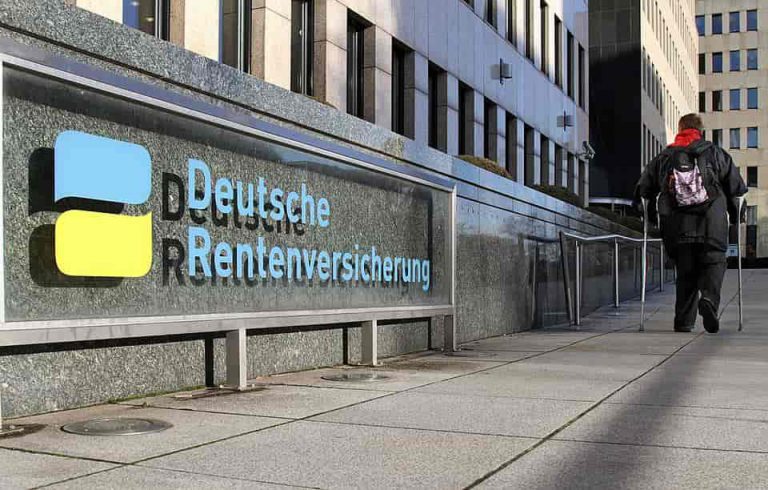As Europe’s economic powerhouse, Germany is still the prime destination for foreign companies looking to set up a business in the continent. When establishing a local presence in Germany, setting up a GmbH is the most popular business classification.
Nevertheless, Germany is also known for its high level of bureaucracy. And this can be a major challenge for foreign companies. It takes skill and patience to go through the full incorporation procedure when establishing a GmbH in the country.
The following guide aims to provide foreign investors with a full understanding of the concept behind a German GmbH. It will lay out details of advantages and disadvantages as well as explanations for the articles of association. In total, there are 11 steps involved in setting up a GmbH in Germany.
What is a GmbH in Germany?
You will encounter three different types of legal entities for companies in Germany. A foreign company will choose one of them when starting a business in Germany:
- GmbH: Gesellschaft mit beschränkter Haftung (Limited Liability Company)
- UG: Unternehmergesellschaft haftungsbeschänkt (Mini-GmbH or LLC)
- AG: Aktiengesellschaft (Public Limited Company)
Notably, the GmbH is the most common entity type for a subsidiary of a foreign company. First and foremost, a GmbH is a legally independent entity and enables foreign investors to do business in Germany and Europe. Owners of the GmbH are the partners, but you can also create a GmbH as an individual person. One major characteristic is their limited liability.
Consequently, this means that financial liability for shareholders is limited. Hence, the financial investment into the company represents the full value of the financial liability. In case of a lawsuit, the GmbH can be sued, but not the owners or investors. This makes the GmbH an attractive legal form for many company founders.
The legal framework for a GmbH is defined in the GmbH law, commonly referred to as GmbHG. A further important legal basis is the commercial code (HGB) because the GmbH is legally considered as a commercial company.
Advantages and Disadvantages of Setting Up a GmbH
In summary, the following overview lists the main advantages and drawbacks when incorporating a GmbH in Germany:
Advantages
- The liability is limited to the company’s assets;
- Setup is possible for a single person;
- Suitable for start-ups: investors can participate with limited liability;
- The legal status of a GmbH enjoys a high international reputation;
- Tax advantages: Salaries for managing directors are deductible as operating expenses.
Disadvantages
- Complex and costly incorporation procedure;
- Minimum capital requirement: 25,000 EUR (min. half of the capital must be paid into the GmbH’s bank account as a condition to receive the business license);
- Costly accounting and bookkeeping;
- Due to the complexity, there is an incentive to seek support from tax advisors;
- Obligation to publish: The company must publish annual financial statements in the German Federal Gazette (Bundesanzeiger).
However, there are options to circumvent the minimum capital requirement of a GmbH. When setting up a UG (Unternehmergesellschaft haftungsbeschänkt) instead of a GmbH, this requirement is no longer mandatory. The UG is a different type of legal entity and also known as Mini-GmbH. It requires much less capital investment which can be as little as 1 EUR.
When to set up a GmbH in Germany?
A GmbH in Germany is a fully independent legal entity with the sole purpose of engaging in business activities to generate revenue.
An individual can incorporate a GmbH, either with partners or alone. Similarly, a corporation can do this as a legal person as well. It is important to note that a GmbH is a fully independent commercial enterprise and therefore subject to corporate taxation.
When setting up a GmbH, the shareholder does not necessarily have to be the company’s managing director. Interestingly, he does not even have to work in the company. The shareholder of a GmbH is an investor. Consequently, this makes the GmbH attractive especially for start-ups looking to start a business in Germany. This model of participation by investors can be part of the financing strategy.
As a rule of thumb for the timing of incorporation, a GmbH is incorporated in order to make a profit.
10 things you need to know about the GmbH in Germany
1. How many shareholders are required?
A GmbH can be incorporated with a single individual, multiple individuals or a foreign corporation as shareholders. A written and notarized partnership agreement, referred to as the Articles of Association, is the only thing required for the formation of a limited liability company.
2. What is the structure of the management?
According to Limited Liability Company Law (§ 35 GmbHG), the managing director must to be employed by the GmbH and is responsible of managing and representing the company externally. Additionally, the managing director oversees the operative business, and prepares the annual financial statements for publication.
The position of the managing director is decided by the shareholders during the incorporation. After that, the name of the managing director is written down in the Articles of Association as well as within the official company resolution.
The managing director’s contract then regulates the rights and duties of the managing director. If necessary, shareholders have the right to remove the managing director by passing a resolution in the shareholders’ meeting.
3. Who is in control of the GmbH?
While the managing director is in charge of handling the operational business, he/she is directly controlled by the shareholders. At the annual shareholders’ meeting, the managing director reports on the past financial year and current business developments.
As per the GmbH law, the company is required to install a supervisory board in case it employs 500 employees or more.
4. What is the business scope of a GmbH?
The business scope or company objective, also referred to as the ‘Unternehmensgegenstand’, describes the commercial area and type of activity of a GmbH.
It is a mandatory part of the Articles of Association of a GmbH. Furthermore, it must be confirmed by the authorities when registering the GmbH within in the commercial register (Handelsregister).
Additionally, it is important to mention that the company’s objective is legally binding when entered into the commercial register.
5. How much does it cost to set up a GmbH?
Universal Hires strongly advises to partner with an experienced law firm when setting up a GmbH in Germany. From our experience, incorporation costs can range between 1,500 to 2,000 EUR.
In practice, the total costs include but are not limited to:
- Lawyer’s fees for individual statutes;
- Notary costs;
- Local administration fees for registration in the Commercial Register;
- Business registration costs.
6. How long does the incorporation take?
To go through the incorporation of a GmbH, prepare yourself well and bring a lot of patience. If everything goes well, it might take up four to six weeks.
7. How to choose the company name?
Prior to registering the GmbH with the authorities, the shareholders should choose the company name. Simply note that on the one hand, the name must not be taken already. And on the other hand, the abbreviation “GmbH” or the suffix “Gesellschaft mit beschränkter Haftung” must be added to the chosen company name.
In order to find out if the preferred name is still available, simply search the name on google or check directly at the German Patent and Trademark Office whether the name is already protected: register.dpma.de (available only in German)
As the legal provisions in the law on names are very complex, we recommend to seek advice from a legal advisor. This will help to avoid any legal troubles.
8. What is the minimum required capital to incorporate a GmbH?
The statutory minimum capital or a share capital for a GmbH is 25,000 EUR. Note that half of the capital must be paid into the corporate bank account prior to starting any business activities.
9. Who is liable for what in a GmbH?
As stated in its name, when doing business in Germany with a GmbH, there are certain regulations when it comes to the company’s liability. These are set as below:
- Prior to the registration of the GmbH in the commercial register: In case the GmbH enters into commercial agreements before the registration of the GmbH in the commercial register is completed, the shareholders are liable with their private capital and their share capital. Therefore, it is important to bear in mind not make any risky decisions when the GmbH is still in the process of being incorporated.
- Liability of shareholders for the amount of their shares: The shareholder’s liability is limited to the amount of shares as per the set share capital. Note that he/she is obliged to pay his share in full when registering the GmbH.
- Liability of the GmbH: The GmbH is liable with its entire company assets. However, as stated above, the private assets of the shareholders will remain untouched.
- Liability of the managing director: The managing director is responsible in particular for obligations in regards to corporate taxation, social security payments, bookkeeping, insolvency delay or publishing requirements. In any case, the managing director of the GmbH can be held accountable (also referred to as “Durchgriffshaftung”).
10. How can the GmbH distribute dividends?
The distribution of profits is generally regulated by the Articles of Association. Unless stated otherwise, shareholders are entitled to receive dividends depending on their actual amount of shares held within the GmbH.
At the annual shareholders’ meeting, the shareholders decide by resolution how the profits are distributed. They can either be paid out as dividends, or kept in the GmbH in form of reserves.
Articles of Association and Director’s Agreement
There are two major agreements when starting a business in Germany. Every company has the Articles of Association, which define the rights and duties of the shareholders. And secondly, there is the Director’s Agreement. It lays out details of the employment relationship between managing director and the company.
Articles of Association
The Articles of Association are also referred to as the shareholders agreement. A standardized memorandum and articles of association is the so-called model protocol. This model protocol is suitable for a GmbH with up to 3 partners and a single managing director. In addition, you should instruct a lawyer to draw up an individual articles of association.
The following regulations are contained in an individual articles of association:
- Company name;
- Registered office of the company;
- Object of the company;
- The company’s financial year, should it deviate from the normal year;
- Amount of share capital;
- Name and number of managing directors and regulation of powers of representation;
- Regulations on transactions requiring approval;
- Regulations on annual financial statements and distribution of profits;
- Regulations on the sale of shares;
- Regulations on the withdrawal of a shareholder or a shareholder.
Director’s Agreement
The employment contract of the managing director regulates his/her rights and duties when in charge of the GmbH’s operations. The contract must include the following points:
- Detailed relationship to shareholders: Resolutions, Rules of Procedure, Articles of Association;
- Scope of the power of representation: departmental responsibilities with several managing directors;
- Remuneration: salary, performance-based bonuses, company car, allowances, etc.;
- Duration of a contract;
- Rules for termination and applicable notice period;
- Contractual and post-contractual non-compete, non-solicitation and confidentiality obligations.
The 10 Steps to Set Up a GmbH in Germany
The following paragraph details the 10 key steps when setting up a GmbH:
1. Articles of Association
When drafting the Articles of Association (Gesellschaftervertrag), make sure to have it double checked by a lawyer as it is the key document during the incorporation.
2. Corporate Bank Account
Opening a bank account in Germany is a mandatory requirement in order to make the capital contribution. The receipt of the contribution payment of the share capital is submitted to the notary.
3. Notary Visit
The notary registers the GmbH within the commercial register (Handelsregister) on behalf of the company’s shareholders. In addition, properties that are brought into the GmbH are notarized.
Looking for a notary? Be sure to visit https://notar.de to find a notary that speaks your language.
4. Commercial Registration
Upon successful entry in the commercial registry by the notary, the shareholders receive the official approval in form of a notarized document.
5. Trade Office Registration (Gewerbeamt)
The managing director registers the GmbH with the commercial trade office which is also referred to as the official business registration.
6. Tax Office Registration (Finanzamt)
The GmbH must complete the questionnaire for tax registration at the tax authority. Upon successful registration, the GmbH will receive an individual tax number.
7. Accounting and Taxes
Accounting and bookeeping prcesses are complicated. It is highly recommended that this should be handled by an accounting specialist directly.
8. IHK / HWK Registration
In case a GmbH is engaged in trading activities, the registration with the Chamber of Industry and Commerce (IHK) or the Chamber of Handicrafts (HWK) is mandatory.
9. Federal Employment Agency (Bundesagentur für Arbeit)
Note that in order to hire staff within the GmbH, the company needs to apply for a company number with the Federal Employment Agency (Bundesagentur für Arbeit).
10. Trade Insurance Institutions (Berufsgenossenschaft)
The registration with the Trade Insurance Institutions is often forgotten. Usually, this should take place within one week of the company being founded.
Commercial trade insurance institutions are the carriers of German statutory accident insurance and cover the employee for work-related accidents with prevention, rehabilitation and training/development support.
Corporate Bank Account
How to open a bank account is one of the most commonly asked questions when setting up a GmbH in Germany.
In reality, the bank account is opened as soon as the Articles of Association have been notified by the notary. The account should be opened with a traditional commercial bank such as Deutsche Bank, Commerzbank, Sparkasse or Volksbank. Fintechs currently are not able to offer corporate accounts.
To open the account, the following documents are required:
- Identity cards (German Nationals) or passports (Foreign Nationals) of all shareholders;
- List of shareholders with names and addresses;
- Notarized Articles of Association;
- Power of representation and powers of attorney.
Bookkeeping and taxes for a GmbH
Once the GmbH has been successfully incorporated, accounting requirements are likely to increase. In Germany, a GmbH is required to practice double-entry bookkeeping as well as a to prepare an annual financial statement. This includes a transparent balance sheet and a profit-loss statement.
Above a certain size, an auditor must also approve the annual financial statements of the GmbH. After all, double-entry bookkeeping can become a complex matter.
Therefore, we recommend to consult with a tax advisor for all financial related matters. Nevertheless, the overall tax situation is rather difficult when setting up a GmbH.
However, a GmbH brings several advantages. The salaries of the managing director and the shareholding partners for example, can be listed as operating expenses. In addition, the corporate tax rate is also lower than the individual income tax rate.
Special forms and variations of the GmbH
In case your corporation is looking into setting up a GmbH in Germany, it is good to be aware of the special forms and variations:
One-Person-GmbH: This form of a GmbH is for companies with one shareholder only. This is interesting for everyone who wants to set up a company as a sole proprietor.
Unternehmergesellschaft haftungsbeschränkt / Entrepreneurial company (UG) : The so-called Mini-GmbH allows companies to set up a company with a starting capital of only 1 EUR, and while using all the advantages of the regular GmbH.
Gemeinnützige GmbH (gGmbH): This allows you to set up a non-profit company and benefit from its tax advantages. Also possible as a non-profit UG (gUG).
Conclusion
All in all, the GmbH is a good option when a foreign company requires an independent entity in Germany.
The main advantages of the GmbH is the low investment liability for founders as well as its high international reputation. On the other hand, investors can enjoy a wide range of tax advantages by considering the managing director’s salaries as operating expenses. With the limitation of liability, the GmbH is especially interesting for investors.
However, the establishment of a GmbH can be a resource-intensive, lengthy and complicated procedure. Especially for startups and medium-sized companies that are primarily looking to develop the German market prior to making a long-term commitment in form of a GmbH incorporation, it is advised to consider an Employer of Record / Profession Employment Organization solution. This way, staff can be simply onboarded via Universal Hires instead of having to set up an entity just to hire employees.












Investigator in GTA
I enjoyed visiting your webiste. I leave comments rarely, but
you definately up deserve a thumbs!